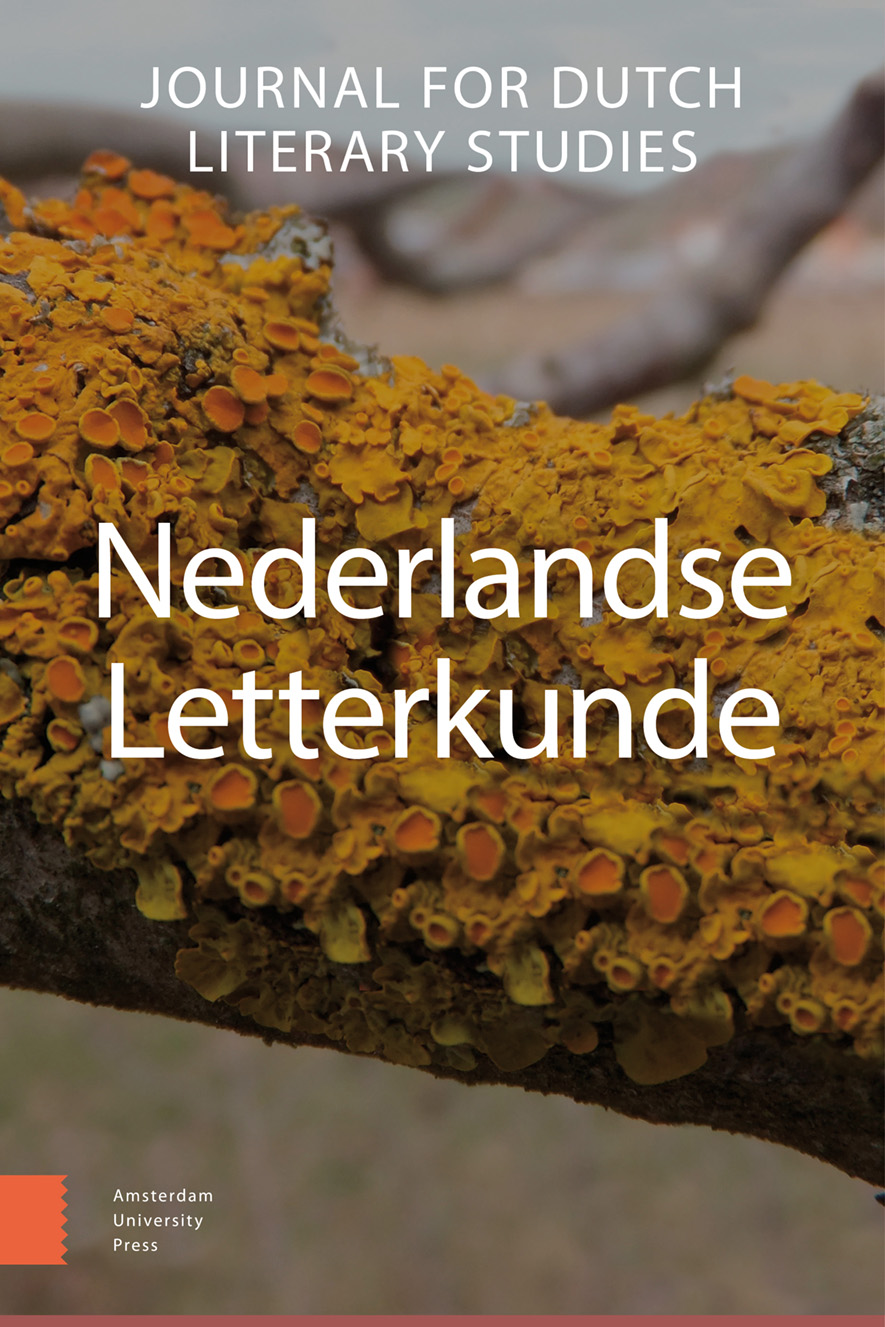- Home
- A-Z Publicaties
- Nederlandse Letterkunde
- Previous Issues
- Volume 22, Issue 3, 2017
Nederlandse Letterkunde - Volume 22, Issue 3, 2017
Volume 22, Issue 3, 2017
Taal:
Engels
-
-
En scène!
Meer MinderDoor Matthieu SergierAbstract En scène! The Biography as a visible loss This article is based on the finding that it is unsustainable for the biographer to maintain a strict perception of historical accuracy. Two questions are discussed in more detail. Firstly, how does the biographer handle the realization that he never really grasps the historical truth, although his work is expected to indicate a true record of events based in verifiable facts? Secondly, to Read More
-
-
-
De biograaf als bijziende historicus
Meer MinderDoor Jeroen van ZantenAbstract The biographer as a short-sighted historian. Biography, micro- and metahistory During the first decades of the twentieth century biography, as a vital and living discipline within academic historiography, became more and more marginalised. Young historians, eager to professionalise their craft and to incorporate new social theories and methods, dismissed biography as a short-sighted, subjective, bias, Read More
-
-
-
‘Wie zich voor “marxist” uitgeeft’
Meer MinderDoor Sven VitseAbstract ‘Whoever passes oneself off as a “Marxist”’. Marxist monographs on Multatuli by J. Saks and F.W. Driessen This paper compares two Marxist biographical monographs on Dutch 19th century writer Multatuli, by J. Saks and F.W. Driessen, and interprets the differences between their respective approaches in relation to conflicting tendencies within Marxism. Whereas the former adheres to an objectivist (or determinist Read More
-
-
-
Variaties op een genre
Meer MinderDoor Hans VandevoordeAbstract Variations on a genre. Three alternative forms of biography This article presents alternative forms of life description by means of a biography in progress on the Flemish author August Vermeylen (1872-1945). The first form, the ‘turning point biography’ or ‘hapax biography’, avoids too conventional forms of biography by breaking up the traditional linearity and chronological presentation of life facts. One cruci Read More
-
Volumes & issues
Most Read This Month
Article
content/journals/13845829
Journal
10
5
false
nl


